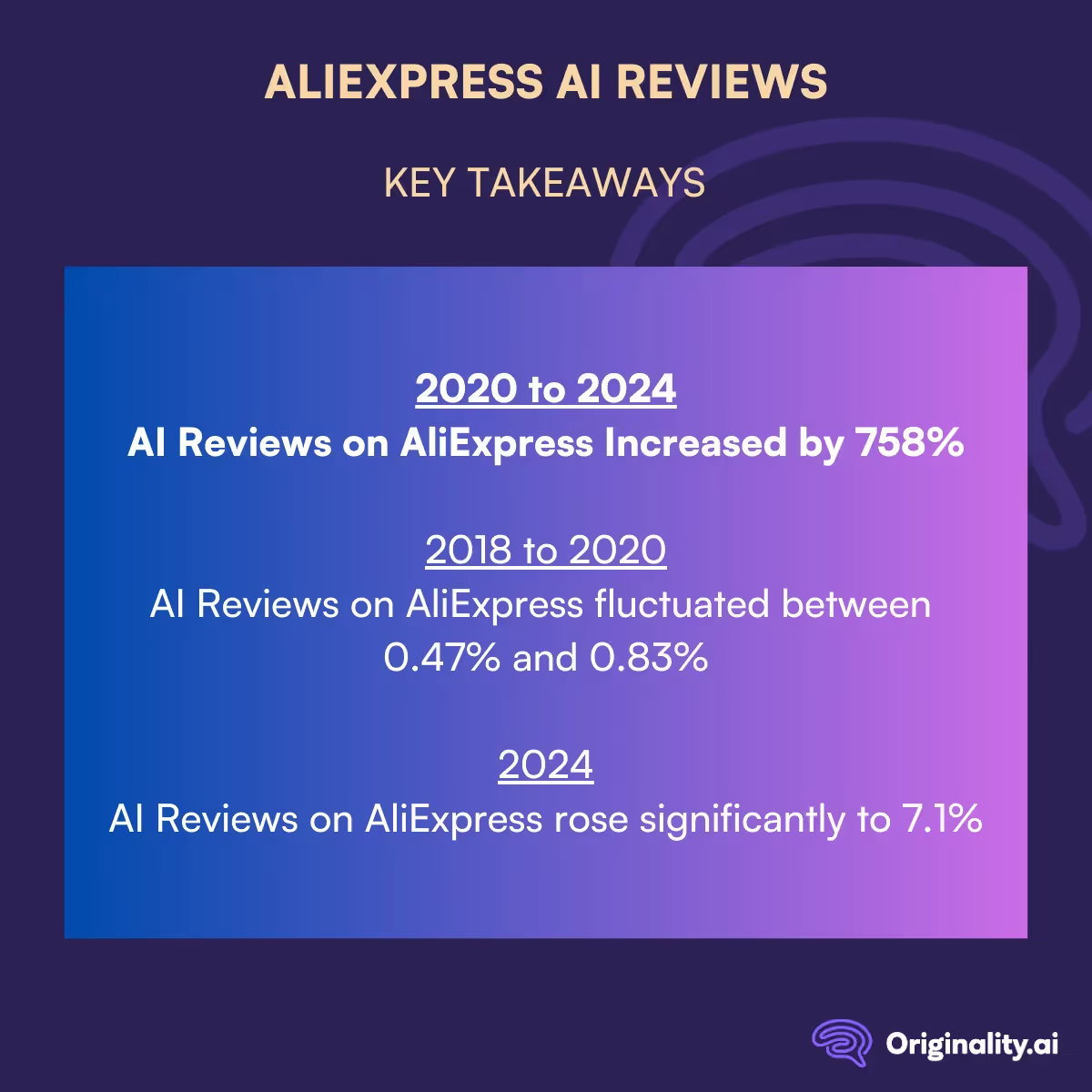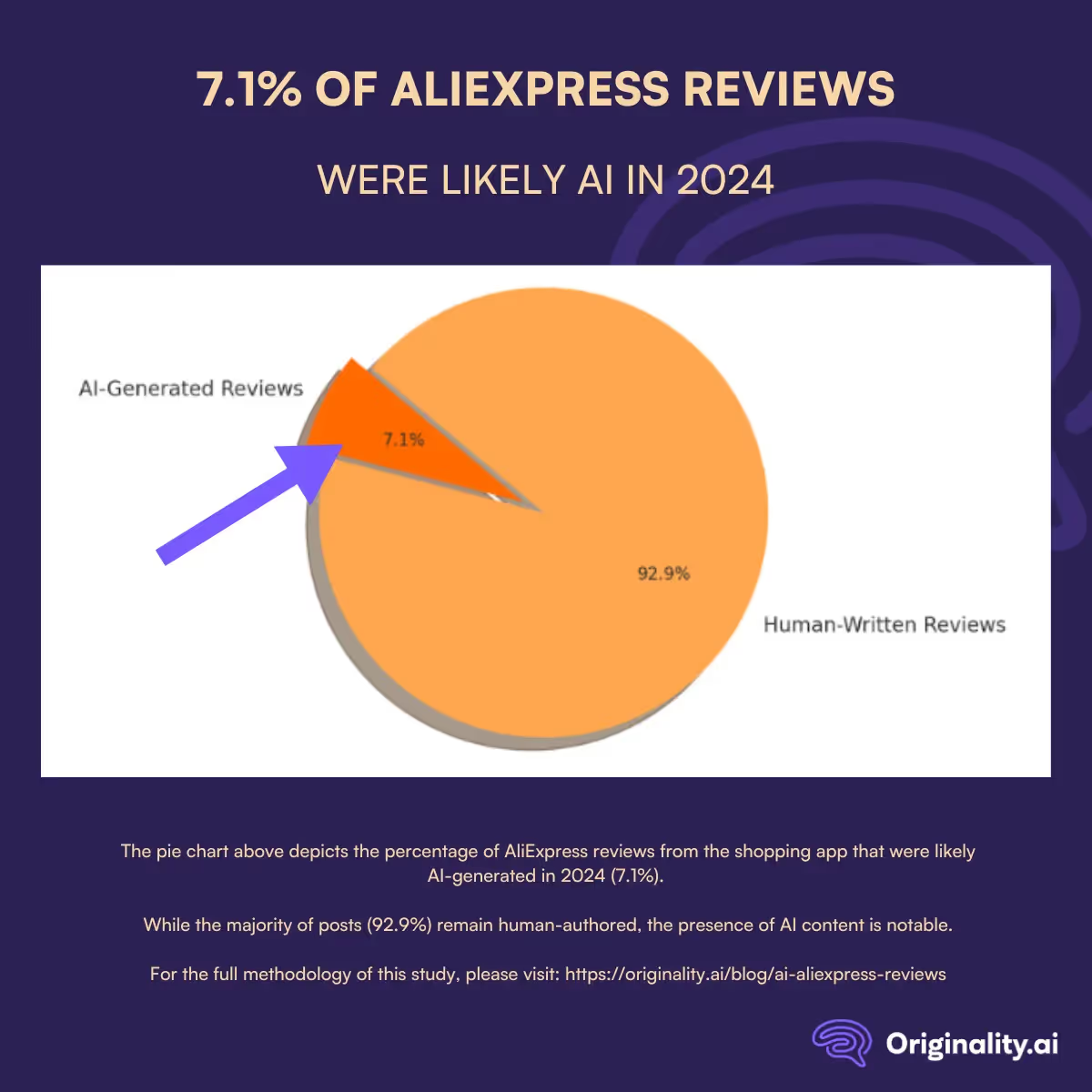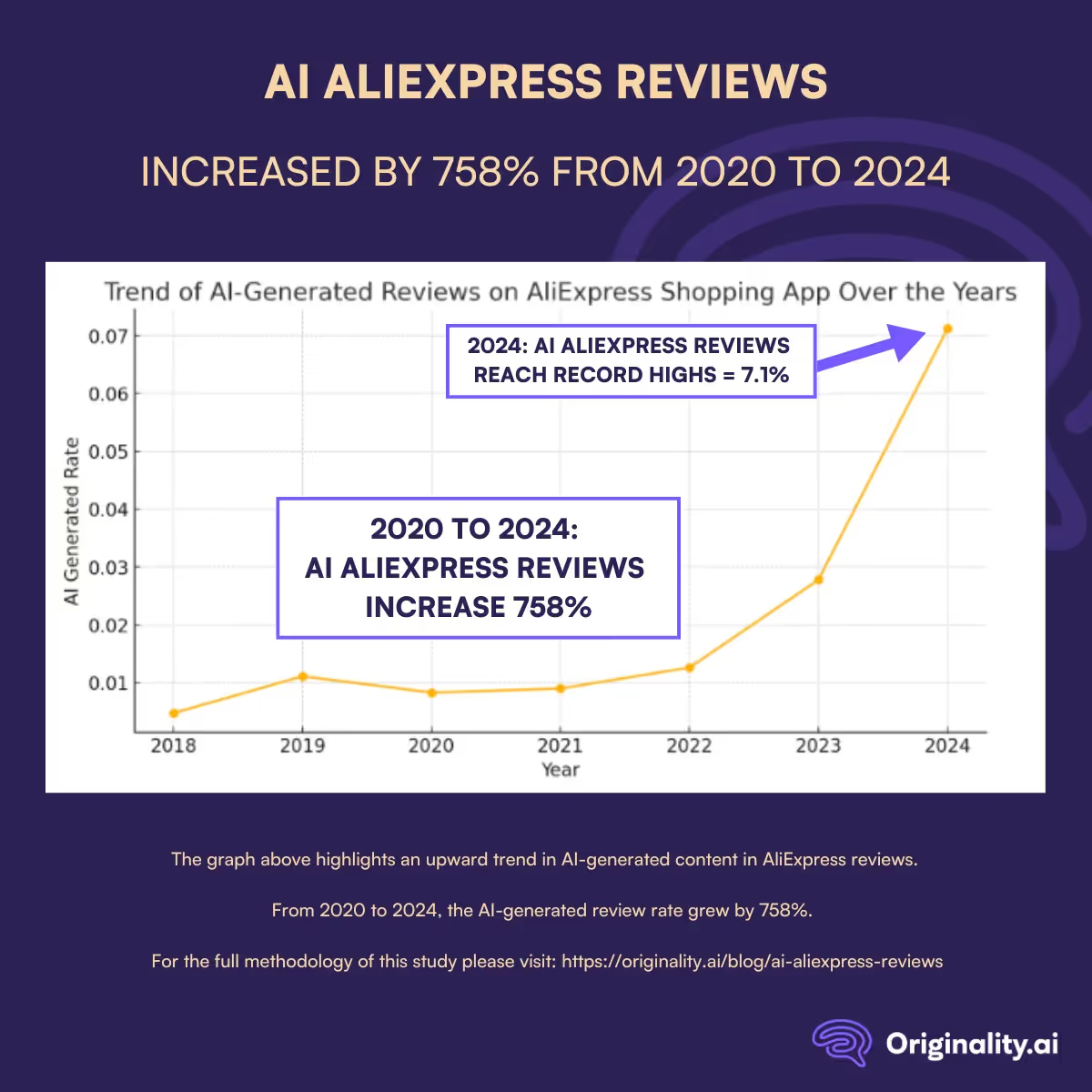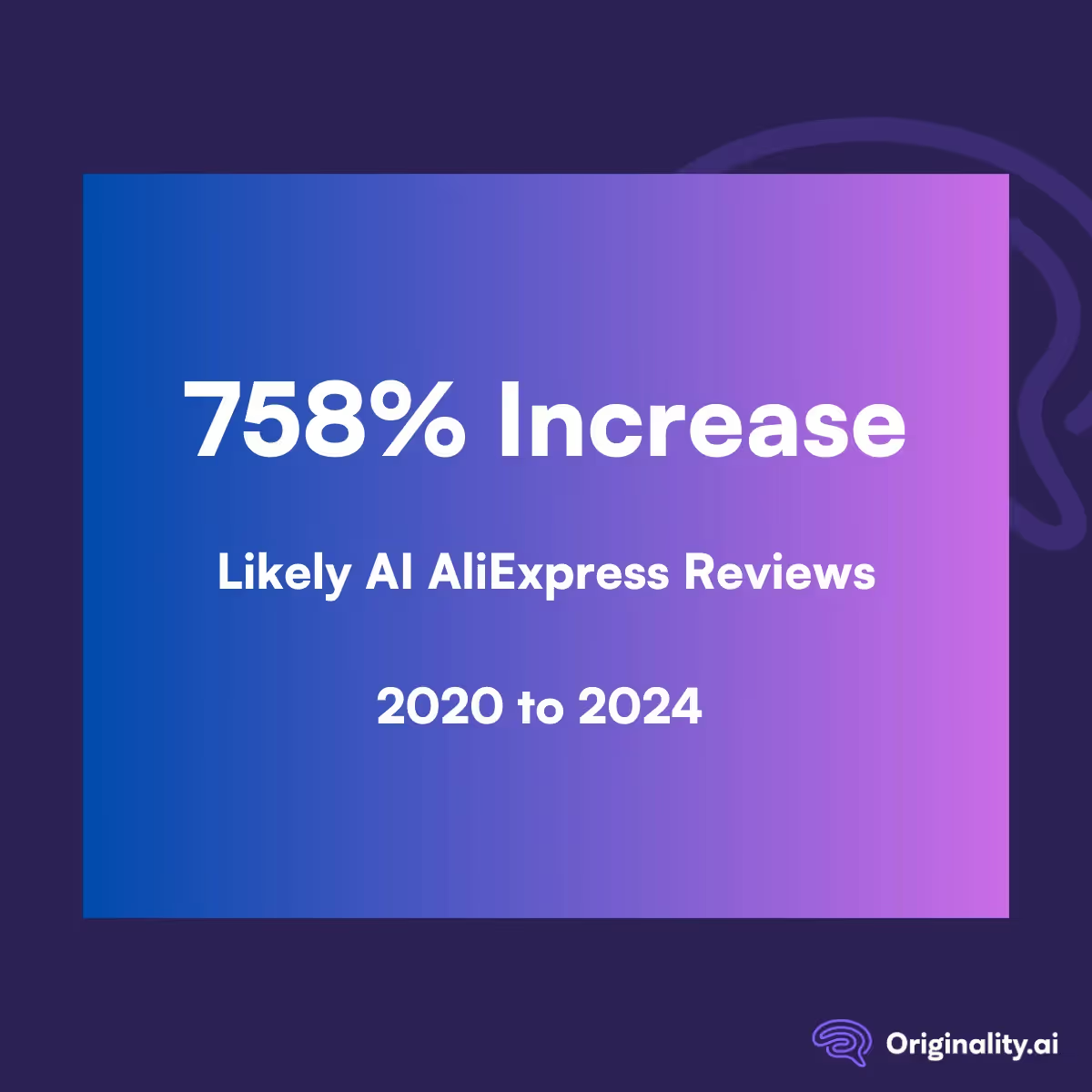User-generated reviews play a crucial role in shaping consumer trust and purchase decisions.
Platforms like AliExpress rely on customer reviews to provide insights into product quality, reliability, and seller reputation.
However, with the rise of generative AI technologies, a growing concern has emerged regarding the authenticity of online reviews across a number of platforms including the Alibaba Shopping App, Glassdoor and Quora.
AI-generated reviews whether created by automated bots, businesses, or users leveraging AI-assisted writing tools — can influence consumer behavior and distort the perceived credibility of products and services.
This study aims to track the proportion of AI-generated reviews over time on AliExpress, analyze the extent of their growth, and explore potential implications for online consumer trust.


The analysis of AI-generated reviews on the AliExpress Shopping App reveals a striking upward trend in recent years. In 2020, the proportion of AI-generated reviews was approximately 0.83%, indicating that the presence of AI-generated content was relatively minimal.
However, as AI-powered text generation tools became more sophisticated and widely adopted, the percentage of AI-generated reviews has surged significantly.
By 2024, the AI-generated review rate had increased by an astounding 758%, signaling a fundamental shift in how reviews are created on the platform.
While the rapid increase in AI-generated reviews is concerning, it’s important to note that 92.9% (the majority) of all AliExpress reviews are still human-written.
That said, if the percentage of AI reviews continues to increase, there could be some major implications.

Between 2018 and 2020, the AI-generated review rate remained relatively low, fluctuating between 0.47% and 0.83%. This suggests that AI-generated content was either effectively moderated or not yet widely adopted for generating product reviews.
However, from 2021 onward, a consistent upward trend is observed, with AI-generated reviews increasing at an accelerated rate.
This shift aligns with the broader adoption of large language models and AI-powered content generation tools, which have become more accessible to businesses and individual users.

The sharp rise in AI-generated content on AliExpress (758% increase from 2020 to 2024) raises important questions about the authenticity and reliability of online reviews.
With AI-generated reviews becoming more prevalent, there is an increasing risk that some reviews may be artificially created to manipulate consumer perception of products. If left unregulated, the rising trend of AI-generated reviews could lead to misinformation, distort product ratings, and ultimately impact consumer purchasing decisions.
The rapid expansion of AI-powered content generation tools has made it easier for businesses, sellers, and even bots to produce AI-generated reviews. This shift calls for stronger AI detection mechanisms and content verification strategies to differentiate genuine consumer experiences from artificially created feedback.
This study highlights a dramatic increase in AI-generated reviews on the AliExpress Shopping App, particularly over the past few years.
The 758% rise from 2020 to 2024 underscores the growing role of AI in shaping e-commerce platforms. Going forward, e-commerce platforms like AliExpress must enhance their moderation efforts by integrating AI-detection systems, transparency measures, and user education initiatives to ensure a balanced and trustworthy review ecosystem.
As AI continues to evolve, striking the right balance between leveraging AI for efficiency and maintaining authenticity will be crucial for the future of online marketplaces.
Are you unsure if a review or post you’re reading is human-written or AI-generated? Use the Originality.ai AI detector to find out.
Read more about the impact of AI on online platforms:
This study used automated AI content detection to analyze AI-generated reviews on the AliExpress Shopping App. Reviews were extracted, analyzed using Originality.ai, and categorized as AI-generated or human-written. Key findings included trends in AI-generated content over time.
This methodology offered a structured, data-driven approach to studying AI-generated content in e-commerce.

MoltBook may be making waves in the media… but these viral agent posts are highly concerning. Originality.ai’s study with our proprietary fact-checking software found that Moltbook produces 3 X more harmful factual errors than Reddit.